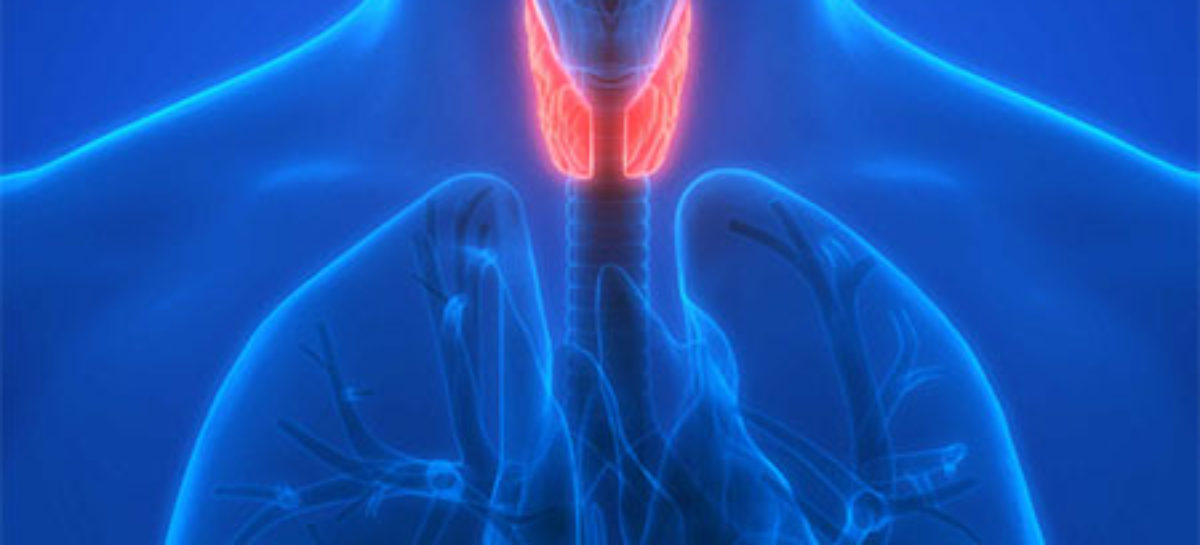What is Thyroid?
The human body is made up of various body systems such as Musculo-Skeletal, Nervous, Cardiovascular, Respiratory, Digestive, Reproductive systems, Endocrine etc.
The Endocrine system comprises tiny organs called glands which secrete hormones that regulate one or more functions in the body.
One among these is thyroid, a butterfly-shaped gland that sits at the front portion of the neck, below the voice-box and enveloping the windpipe. The tissues in the thyroid give it a flexible structure; so that the thyroid can move comfortably every-time we swallow food or liquids.
The Role of the Thyroid Gland
The thyroid secretes three hormones: triodothyronine or T3, thyroxine or T4 and calcitonin which perform various functions. The secretion of these hormones is regulated by the pituitary gland which secretes a hormone called Thyroid Stimulating Hormone (TSH ) to achieve this. The pituitary gland is in turn regulated by the hypothalamus gland which secretes a hormone called Thyrotropin-releasing hormone (TRH) to achieve this. They work on a feedback loop system, one controls the other.
The thyroid gland is critical to normal development and functioning of the human body. It plays a major role in metabolism, regulating many body functions and maintaining the energy balance. That is, if the body requires more energy as in cold weather or if the person is pregnant, the thyroid responds by producing more hormones.
The thyroid regulates all of these and more:
- Normal development of the brain during childhood
- Central and peripheral nervous systems
- Breathing and heart rate
- Muscle strength
- Body weight
- Body temperature
- Cholesterol levels
- Menstrual cycles
- Calcium and Phosphate levels in the blood
- Bone metabolism, maintenance and growth
To achieve all this, the thyroid requires small amounts of the trace mineral iodine. This is absorbed by the body from the food we consume. It’s for this reason that several governments around the world have mandated addition of iodine in common salt.
Thyroid conditions
The thyroid is affected by many conditions or ailments which impair its normal functioning.
Hyperthyroidism: In this condition, the thyroid is over-producing hormones; as a result, the body’s metabolism is speeded-up unnecessarily. Symptoms include:
- Sweating or sensitivity to high temperatures
- Missed or light menstrual periods
- Nervousness, hyperactivity
- Irritability or moodiness
- Hand trembling (shaking)
- Anxiety
- Hair loss
Hypothyroidism: The opposite of hyperthyroidism, here the body is under-producing hormones; as a result, the body’s metabolism and growth are sluggish. Symptoms include:
- Tiredness and fatigue
- Trouble sleeping
- Difficulty concentrating
- Depression
- Dry skin and hair
- Frequent, heavy periods
- Sensitivity to cold temperature
- Joint and muscle pain
Goitre: Caused by iodine deficiency or a thyroid inflammation called Hashimoto’s thyroiditis, characterized by swelling and enlargement of Thyroid
Thyroiditis: Inflammation of the thyroid caused by a virus or an autoimmune disorder; characterized by pain or no symptoms at all.
Graves disease: An autoimmune disorder where the thyroid is over-stimulated, which leads to hyperthyroidism.
Thyroid cancer: A cancer of the gland that is curable when diagnosed early.
Thyroid nodules: One or more abnormal lumps or nodules develop in the thyroid gland which may cause hyperthyroidism or no problems at all.
Thyroid storm: A rare type of hyperthyroidism characterized by severe illness.
Diagnosis
There are various tests to diagnose thyroid malfunction. This includes blood tests to check for thyroid hormone, TSH and thyroglobulin (a protein to which the hormone binds) levels. Other tests include thyroid scan, thyroid ultrasound and anti-TPO antibodies. If the doctor suspects thyroid cancer, he/she may call for imaging tests such as CT, MRI and PET scans.
Treatment
Thyroid hormone pills are given in the case of hypothyroidism. Hyperthyroidism is treated by tablets, low doses of radioactive iodine or surgery. Goitre is treated by surgery while thyroid cancer is treated by surgery, large doses of radioactive iodine and external radiation.
Conclusion
Thyroid is one of the most important glands in the body and a malfunction of the thyroid can disrupt your life in a big way. But the good news is, when diagnosed and treated in time, all these conditions are curable. That is why; it’s important to Include Thyroid Function Tests or TFT in your annual health check-up.
And if you are diagnosed with a thyroid condition, do not panic. Consult a reputed hospital. Such hospitals have the best endocrinologists in town on their rolls. These specialists will design the best course of treatment for quick recovery and rehabilitation.
Kauvery Hospital is globally known for its multidisciplinary services at all its Centers of Excellence, and for its comprehensive, Avant-Grade technology, especially in diagnostics and remedial care in heart diseases, transplantation, vascular and neurosciences medicine. Located in the heart of Trichy (Tennur, Royal Road and Alexandria Road (Cantonment), Chennai, Hosur, Salem, Tirunelveli and Bengaluru, the hospital also renders adult and pediatric trauma care.
Chennai – 044 4000 6000 • Trichy – Cantonment – 0431 4077777 • Trichy – Heartcity – 0431 4003500 • Trichy – Tennur – 0431 4022555 • Hosur – 04344 272727 • Salem – 0427 2677777 • Tirunelveli – 0462 4006000 • Bengaluru – 080 6801 6801



